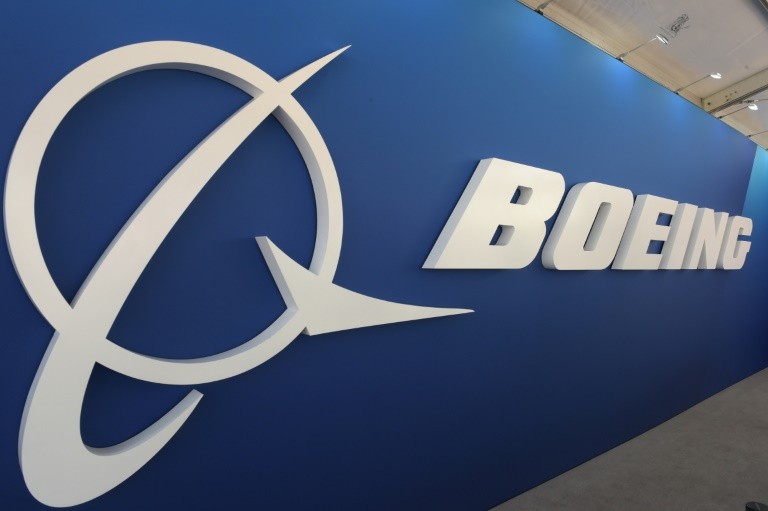Boeing lost $52 billion on the stock market in a week, a rout that underscores the challenges facing the aircraft manufacturer amid setbacks over the 737 MAX and the coronavirus pandemic.
But Boeing remains a business behemoth key to the American economy.
The industrial giant has lost all the gains amassed since President Donald Trump arrived in the White House in January 2017, which begs the question: Is the maker of the presidential plane, Air Force One, on solid financial ground?
For years, investors believed the 104-year-old company was a safe bet, because it has driven multiple technological revolutions and operates in a safe and growing market, says Richard Aboulafia, aviation expert at Teal Group.
But “these beliefs are being tested” with the 737 MAX crisis, he said.
“Boeing is in distress and a lot of that is self-inflicted.”
Read Also: Wind Forces Boeing To Again Delay First Flight Of 777X
– Short on cash? –
Boeing itself helped sow doubt this week: According to AFP banking sources, the aircraft manufacturer drew on the full $14 billion credit line it only just secured from banks last month.
That request gave the impression the company is strapped for cash, said Ken Herbert at Canaccord Genuity.
Boeing, which faces a mountain of lawsuits from families of victims of the Ethiopian Airlines and Lion Air crashes involving its troubled 737 MAX, wants to make sure it has enough reserves to deal with any unexpected problems in the current uncertain climate in the financial markets, sources familiar with the matter told AFP.
“There is no cash issue,” said one source.
Contacted by AFP, the company declined to comment.
Boeing estimates that the MAX crisis will cost it at least $18.7 billion, which caused its debt to explode to $27 billion as of December 31, 2019.
The manufacturer has neither produced nor delivered any MAX aircraft, which have been grounded for a year after the second of the two deadly crashes, which together killed 346 people.
With the return to the skies uncertain, orders are in the red, and sales of the 787, its main source of income today, have slowed.
Despite these issues “we do not believe Boeing will face a cash crunch,” Herbert said, but new difficulties are mounting due to the spread of the coronavirus.
– Not like the others –
The pandemic poses the most serious crisis for the airline industry since the terrorist attacks of September 11, and likely will cause airlines to postpone their purchases of planes, and even cancel orders.
Delta Air Lines has decided to postpone deliveries of new aircraft, while United Airlines will only take on new aircraft if it believes it can pay for them.
“Our desire to hang in with Boeing until the return of the 737 MAX has worked out poorly, both regarding the timeline for re-certification and now more importantly with the impact of COVID-19 on aircraft demand,” said Seth Seifman at JP Morgan, who until the pandemic was among the very few Wall Street experts advising investors not to sell their Boeing shares.
But Gregori Volokhine at Meeschaert argues that Boeing “is a business like no other.”
“They are so essential to the defense department that it is not a company that the government would drop,” he said.
Not only does the group manufacture the KC-46 tanker as well as the F-18 and F-15 fighter jets, but it also is the leading American exporter with around 600 suppliers employing hundreds of thousands of people in the United States.
The MAX assembly plant alone employs 12,000 people. When Boeing suspended production of the MAX in January, most economists believed that this decision would affect US growth in the first half.
The impact of the Boeing crisis on the economy “is bigger than what you would see in a hurricane,” said Joel Prakken, economist at IHS Markit.
AFP

